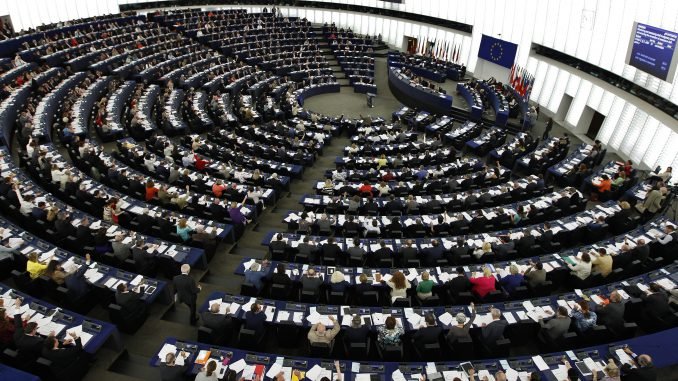
Hungarian MEP Tamas Meszerics of the Greens/European Free Alliance political group called on fellow MEPs to support Landsbergis’ report during a vote scheduled for Thursday. He drew attention to the fact that Europe had nothing against Russian citizens, only the Russian government.
“We would like to have the Russian society as partners. (…) What we have problem with, it’s Russia’s leadership,” he said in Strasbourg.
Meanwhile, British MEP James Carver of the Europe of Freedom and Direct Democracy political group, while not denying Russia’s involvement in the eastern Ukraine conflict, said the EU had not done much either to promote peace.
“There is blame on both sides,” he said, accusing Europe of expansionism. NATO’s stepped-up military training could also be a reason for Russia’s fear for a possible war.
Lithuanian MEP Petras Auštrevičius, representing the Alliance of Liberals and Democrats for Europe political group, believes some MEPs have failed to learn the Cold War lessons, adding that a cold war with Russia is taking place now as well.
“Whether we like it or not, but we have already gone back to the times of the Cold War. Now it’s a hybrid cold war,” he said, adding that the existing situation was caused not only by the war in Ukraine but also by Russia’s “re-sovietization” at the hands of President Vladimir Putin.
The Landsbergis report on the state of EU-Russia relations claims that Russia is directly and indirectly involved in the war in Ukraine, using “a new type of hybrid warfare”, and its actions amount to a deliberate violation of the core democratic principles and values upheld by the EU and widely shared internationally. The EU cannot envisage a return to “business as usual” with Russia and should re-assess as soon as possible its relations with Russia to counter the aggressive and divisive policies conducted by Russia against the EU and its partners.
The report also states that Russia must commit itself to implementing, fully and honestly, the provisions of the Minsk Agreements, respect Ukraine’s territorial integrity (including Crimea), and a dialogue with Russia should not be conducted at the expense of European values, standards and international commitments. The sanctions will be strengthened should Russia chose to do otherwise and refuses to take any positive steps to change its policy.
The report also calls for taking measures for countering Russian propaganda within the EU and abroad.
The final vote on the report is scheduled for Thursday. If adopted, the document will be presented to other EU institutions, including the president of the European Council, the European Commission, the European Council, the European External Action Service, as well as to the governments of Russia and Eastern Partnership countries and EU parliaments.

Be the first to comment